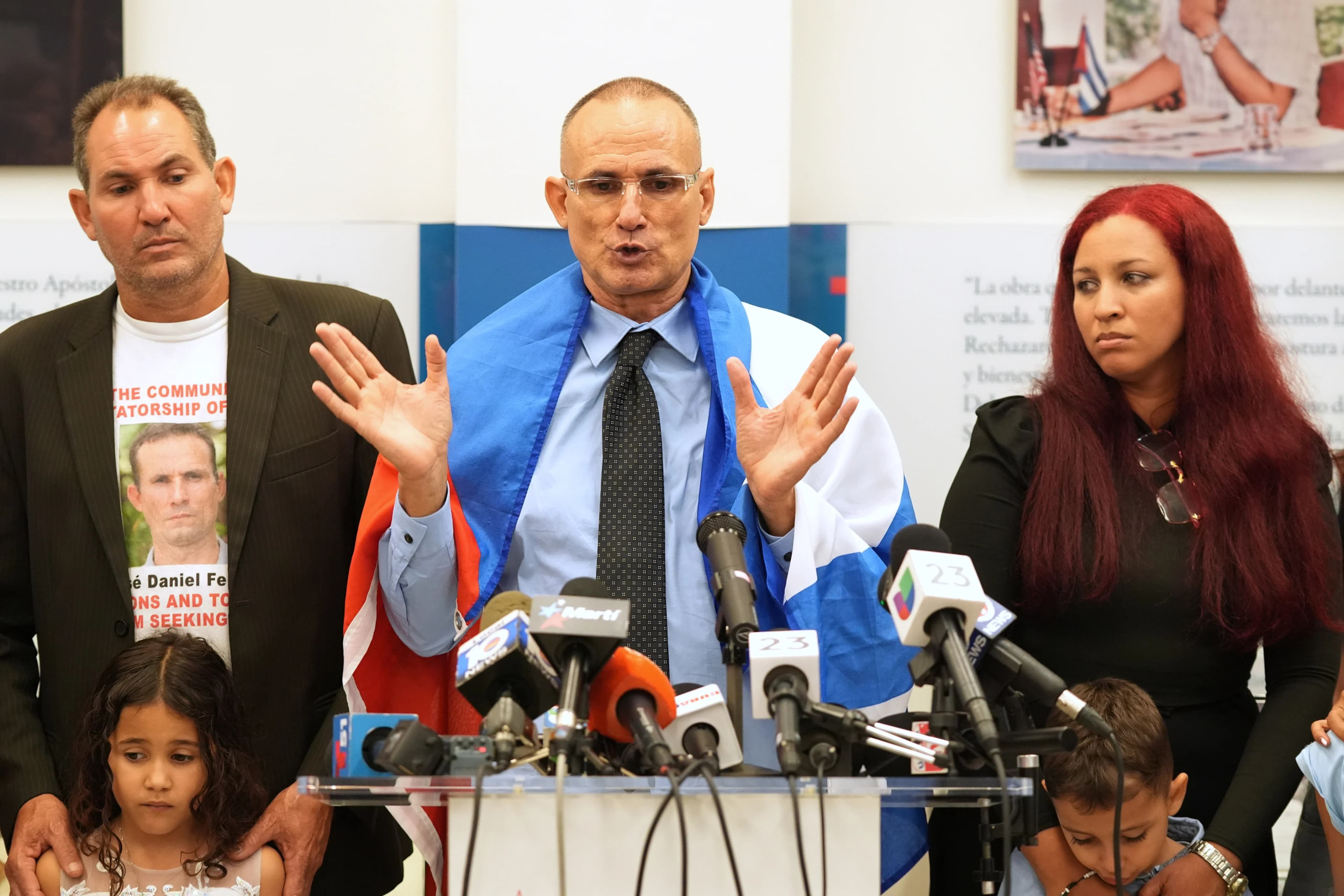We're loading the full news article for you. This includes the article content, images, author information, and related articles.
Prominent Cuban opposition leader José Daniel Ferrer has been freed from prison and flown to the United States, a development that could influence international human rights discourse and Kenya's diplomatic ties with Cuba.

Prominent Cuban dissident José Daniel Ferrer was freed from prison and departed for the United States on Monday, October 13, 2025, to live in exile with his family. This move follows Ferrer's claims of enduring "torture" and "humiliation" during his repeated imprisonments in Cuba. The Cuban Foreign Ministry confirmed his departure, stating it followed a formal request from the US government and Ferrer's express acceptance.
Ferrer, 55, has been a long-term leader of Cuba's pro-democracy movement and founder of the Patriotic Union of Cuba (UNPACU), one of the most active opposition organisations in the one-party state. He has been in and out of prison since March 2003, when he was arrested alongside 74 other opposition members during Cuba's "Black Spring" crackdown. He was re-imprisoned in April 2025 after being briefly freed under a deal with former US President Joe Biden, a deal that saw Cuba removed from a US list of terrorism sponsors. However, he was sent back to prison after Biden's successor, Donald Trump, reinstated Cuba on the list.
Ferrer's decision to accept exile comes after years of resisting pressure to leave Cuba, despite facing what he described as "blows, torture, humiliation, threats and extreme conditions" in prison. In a letter from prison, he stated that the "cruelty of the dictatorship towards me has known no bounds." Human rights organisations, including Amnesty International and the Institute on Race, Equality, and Human Rights (Race and Equality), have repeatedly denounced the violence and ill-treatment against Ferrer and other political prisoners in Cuba.
The US Department of State's 2024 Country Report on Human Rights Practices in Cuba cited credible reports of arbitrary or unlawful killings, torture, arbitrary arrest and detention, and severe restrictions on freedom of expression and media freedom. These reports highlight a pervasive pattern of repression against dissidents and activists.
The Cuban government maintains that Ferrer's release and exile were based on an "exhaustive evaluation by the prosecutor's office of Ferrer Garcia's legal situation" and were in line with Cuban law and the constitution. However, the specific terms of the agreement to leave the island remain largely unknown. The US government, through Secretary of State Marco Rubio, welcomed Ferrer's arrival and called for the immediate release of over 700 other political prisoners in Cuba.
Ferrer's sister, Ana Belkis Ferrer, expressed relief at his exile, stating her family was "very happy despite the tension of the last days." Upon his arrival in Miami, Ferrer vowed to continue fighting for democracy in Cuba, stating, "I will keep up the fight, but I will not continue it alone. I have to work with the entire exile community." Congressman Carlos A. Gimenez, a Cuban-born member of the US Congress, welcomed Ferrer as a "fearless champion for freedom and liberty."
Ferrer's departure is seen as a blow to the opposition movement within Cuba, which is currently grappling with its worst economic crisis in decades and a mass exodus of young people, primarily to the US. The Cuban government has consistently accused Ferrer and other opposition leaders of being financed by the US government, viewing their activities as attempts to push for regime change.
While the Cuban Foreign Ministry confirmed Ferrer's departure was by mutual agreement, the precise details of the negotiations between the US and Cuban governments that led to his release and exile have not been publicly disclosed. The long-term impact of Ferrer's exile on the Cuban pro-democracy movement and future US-Cuba relations remains to be seen.
Observers will be closely watching for any shifts in the Cuban government's approach to dissent following Ferrer's exile, as well as the US government's continued advocacy for the release of other political prisoners. The impact of Ferrer's activism from abroad on the Cuban opposition movement will also be a key area of focus.
Kenya and Cuba have maintained diplomatic relations since 2001, with Cuba opening an embassy in Nairobi that same year. Kenya established its first resident embassy in Havana in 2016. Both nations have signed bilateral agreements, notably in health cooperation, allowing Cuban doctors to provide healthcare in Kenya and for the training of Kenyan health professionals in Cuba. Kenyan officials have expressed interest in strengthening trade and tourism ties with Cuba.
Keep the conversation in one place—threads here stay linked to the story and in the forums.
Sign in to start a discussion
Start a conversation about this story and keep it linked here.
Other hot threads
E-sports and Gaming Community in Kenya
Active 9 months ago
The Role of Technology in Modern Agriculture (AgriTech)
Active 9 months ago
Popular Recreational Activities Across Counties
Active 9 months ago
Investing in Youth Sports Development Programs
Active 9 months ago